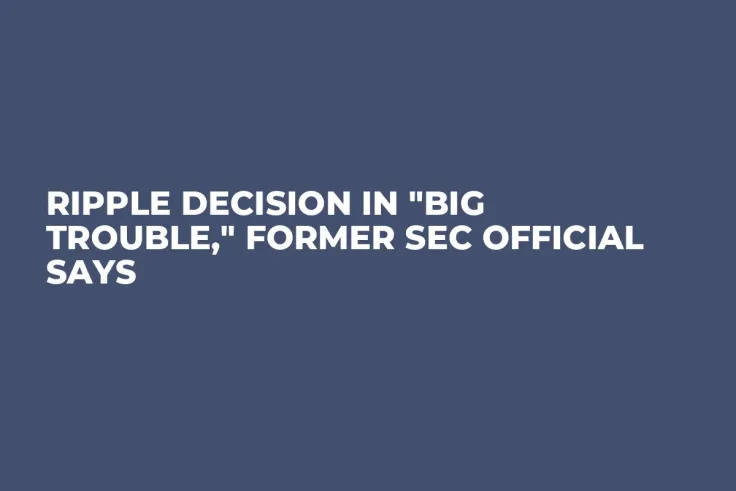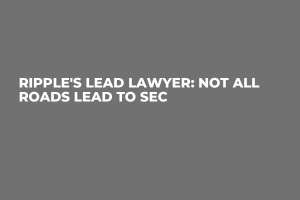John Reed Stark, a former SEC official, has issued a stark warning regarding the ongoing legal battle between the Securities and Exchange Commission (SEC) and Ripple Labs.
Stark pointed to a recent decision made by the Southern District of New York District Judge, Jed Rakoff, that allowed the SEC to proceed with a case against Terraform Labs and its founder, Do Kwon.
In stark contrast to a previous Ripple case, Rakoff dismissed the distinction made between public and institutional sales.
Stark's comments suggest this ruling could severely impact the ongoing Ripple case, with the SEC potentially leveraging this precedent to appeal against Ripple.
Ripple and Terraform: divergent decisions?
Rakoff's ruling against Terraform Labs had strong implications for the cryptocurrency sector. He denied the company's motion to dismiss an SEC lawsuit, holding that the SEC had adequately argued it had jurisdiction and "asserted a plausible claim" that TerraUSD (UST), the Anchor Protocol, and LUNA might have breached securities laws.
The judge specifically refuted the approach taken in a recent Ripple Labs case where the court distinguished between institutional and public sales of digital tokens. In stark contrast to that decision, Rakoff argued that the place of purchase -- direct or secondary markets -- had no bearing on whether the token constituted a security.
Ripple responds: Alderoty and Schwartz weigh in
Stuart Alderoty, Ripple's general counsel, swiftly responded on social media, arguing that the Terra case ruling has no bearing on Ripple. Alderoty claimed that the judgment was based on a preliminary assessment of the SEC's allegations against Terra, contrasting it with the Ripple ruling, which came after a full factual record was presented.
David Schwartz, Ripple's CTO, shared his interpretation, asserting that Rakoff's ruling was based on the unique specifics of Terra's operations rather than how cryptocurrencies generally function.
Both Alderoty and Schwartz stressed that while the judge disagreed with the Ripple case ruling, the crux of the argument revolved around the distinct facts of each case, rather than a blanket judgment on cryptocurrencies.



 Dan Burgin
Dan Burgin Vladislav Sopov
Vladislav Sopov